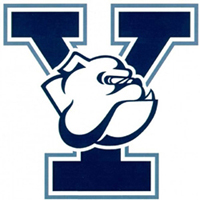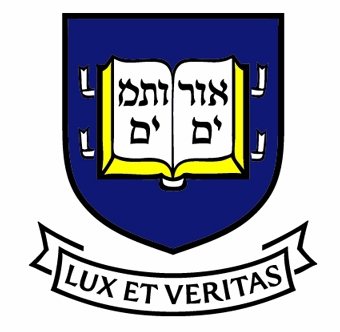





Other Remembrances
Mike Pyle: Yale '61
Dear Bulldogs:
My heart is broken. Mike was much too young to leave us now. As most of us know, he had a very difficult couple of years, almost certainly caused by brain trauma as he was a participant in the NFL players suit against the NFL.
Mike was the prototypical student athlete. An excellent student in Industrial Administration, he of course was an iconic Yale football player and leader. Who didn’t look up to Mike Pyle on the football field? He obviously was a great player, whether it be center, linebacker, or tackle. It is my understanding that he was 23years old when he first captained the Chicago Bears! He was President of the NFL Players Association! He had a wonderful smile, a totally upbeat personality, and a sincere interest in each one of his teammates.
I can see him now. Number 59. Bigger than a house (especially for those days). Physically indestructible. I can’t remember him ever being hurt (or even bruised). Tougher than nails.
Mike was a wonderful representative of Yale University. I am proud to have known him, and especially to have played with him. As Erik Jensen said, it is truly a sad day for Yale football.
Lower the flag to half-mast. We were all so lucky to know him. How lucky were we to have played on the same team that he led.
I certainly hope that we will be well represented at the appropriate service.
We have lost a great leader and a significant part of the soul of Yale football.
Sorrowfully,
Hank
I remain completely saddened by the passing of Mike Pyle. What a different time then versus now in the history of the Ivy League and Yale football.
Yale in 1960 was an all-male institution, Division I. The rules of football were different and one had to play both ways. Offense. Defense. Special Teams. Holder on extra points and field goals and some of us never came out of the game until there was an entire 11-person substitution as the next team came in. It was great. By the way, I don’t remember ever getting “tired.”
That 1960 year was absolutely magical. Started slowly, gained momentum, and play execution was perfected like I’ve never seen in the Yale Bowl.
The first eight games were all at home! Yes, can you believe it? Harvard was of course away and was the nationally televised game of the week, in an era when there at most may have been two or three games on television for the entire Saturday. Our only road trip, to Boston, began by an incredible send-off at the New Haven train station with I recollect (I may not be correct) thousands of fans and the Yale Band.
As sophomores, even we expected to win every game. Don’t forget that Mike’s team as sophomores had a losing record and then yes, indeed, won five shut-outs in a row to become nationally ranked, before Dartmouth came down to the Yale Bowl and won in the rain with something like 13-7 with Seth Strickland from Dartmouth catching the winning touchdown pass. The Bulldogs then lost two of the last three to finish 6-3, clearly a disappointing end to the glorious beginning of the season. The team was on a mission the next year and highly confident with 10 seniors returning as starters.
While Mike Pyle was the captain and a star, there were a number of starters who were at least as good at their positions as he was at his. Ben Balme, of course, was a first team All-American guard when there were only 11 All-Americans on the first team! Tom Singleton was a Bulger Award winner as the very best player in all of New England. He could pass, he could run, he could tackle, he was a great punter, and he hit like a fullback. Hardy Will, the center and linebacker, was captain of the Yale varsity wrestling team and I always felt he was possibly as good as Benny Balme. He was quick, explosive—and mean, even in practice.
Bob Blanchard, the fullback and a linebacker, was the best athlete on the team and could do everything. He ran an interception back 99 years against Colgate and no one could come close to catching him. He was big, fast, and strong, hit like a ton of bricks, and was also a great swimmer, hockey player, tennis player, etc., etc. The two halfbacks, Kenny Wolfe and Louis Muller, were both tough as nails, game breakers, and had earlier perfected the technique of the so-called “knee drive,” a block espoused and required by the backfield coach, Jerry Neri. If you couldn’t master the knee drive, you couldn’t play for Jerry Neri. Jerry prided himself that he had kept Charlie Choo-Choo Justice on the bench at North Carolina (he became an All-American later and was a great runner in the NFL). Jim Brown wouldn’t have played for Neri, unless he first learned how to block with that unique technique. We of course all learned the knee drive! After all, we wanted to play!
Pyle was a highly effective captain for Yale, but he had plenty of help from his fellow seniors in the leadership category. Players at that time were highly self-motivated and didn’t really need a lot of inspiration. Of course, it helped to have full crowds at the Yale Bowl and also have the support of almost the entire student body in the stands rooting for you on Saturday afternoons.
One last comment on that 1960 team. The head coach, Jordan Oliver, was a brilliant man and a great coach. He had a creative mind and would always introduce new and different formations or schemes every week. There was always something that would surprise and throw off upcoming opponents. Ollie, as he was known, was a tackle at Villanova and legend has it that he was so smart that he actually called the plays on offense in the huddle instead of the quarterback! In those days, quarterbacks frequently would call the play as opposed to today’s game where the coaches can micro-manage the game and want to control everything. To me, this means that they don’t trust the players as well. As I have said before, if I could make one change to college football today it would be to require the quarterback to call each offensive play. This brings to mind other characteristics of the 1960 team. It was made up of a bunch of intelligent players who understood the game and carried out their individual responsibilities. The Ivy League could further distinguish itself by letting (or perhaps, require) their student athlete quarterbacks call the offensive plays. This would enhance the education value of football and presumably set our QBs and nature of play apart from other conferences.
Mike was a wonderful captain and representative of Yale and Yale football and it will be quite a while before another one like him comes along.
Hank Higdon